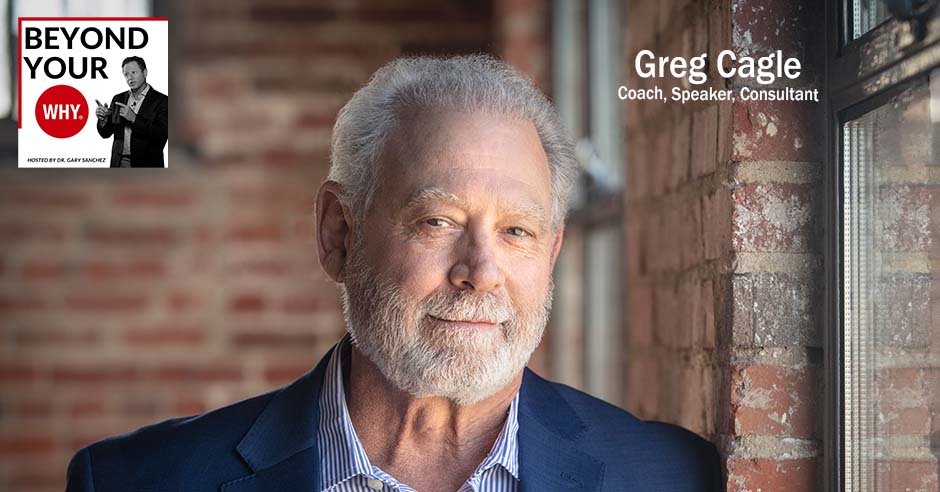
Greg Cagle has always been a rebellious spirit since he was young. But instead of getting into trouble, he loves challenging the status quo and working outside the box. In this conversation, he joins Dr. Gary Sanchez to share how he breaks down processes into their simplest forms to find even better ways to do them. He discusses the immense power of thinking differently and constantly getting out of your comfort zone in pursuit of greater outcomes. Greg also explains how he coaches businesses to escape their limiting boxes. He discusses the three functions every organization must possess and why discomfort is crucial in a healthy workplace.
—
Watch the episode here
Listen to the podcast here
How To Work Efficiently Outside The Box With
Greg Cagle
In this episode, we’re going to be talking about the WHY of Challenge. That is to challenge the status quo and think differently. If this is your WHY, you don’t believe in following the rules or drawing inside the lines. You want things to be fun, exciting, and different. You rebel against the classic way of doing things. You typically have eccentric friends and eclectic tastes because after all, why would you want to be normal? You love to be different and think differently. You aren’t afraid to challenge virtually anyone or anything that is too conventional or too typical for your tastes. Pushing the envelope comes naturally to you.
I’ve got a great guest for you. His name is Greg Cagle. Greg is passionate about advocating for authenticity. He’s a transformational executive coach, a corporate cultural consultant, an author, and a speaker. Leveraging more than 25 years of in-the-trenches experience in building and leading his own companies, Greg comes alongside leaders and guides companies to position them for breakthrough success in building a culture that blows away the competition.
With his proven “Let’s do this” approach, Greg has served top organizations like McCormick, Planet Fitness, Steel Dynamics, Army Special Operations, and the FDA. He’s worked with a wide range of industries, including manufacturing, five-star hospitality, technology software, nonprofit education, higher education, financial insurance, and engineering.
Greg is also partnered with the John C. Maxwell Company for many years as an executive coach, speaker, trainer, and business consultant. In every consulting and coaching relationship, speaking, engagement, and training environment, Greg’s focus is on getting innovative, creative results that empower leaders and teams from around the world to outperform the competition and achieve more than they ever believe possible in business and in life.
—
Greg, welcome to the podcast.
Thank you. It is great to be here.
That was a mouthful. That’s a lot of stuff you’ve done.
It sounds a lot more important than it is. We’ll leave it at that.
Tell everybody, where do you live? Where are you right now?
I live in Knoxville, Tennessee. I moved here back in 2016. That’s home base.
Let’s go back in your life a little bit and see how you got to where you are. Where did you grow up, and what were you like in high school?
I grew up in a very small town in the deep South, in Mississippi to be more accurate. It was a small town. I went to high school at a small school. It’s interesting because when I was reading my WHY, one of the words that it uses is rebel. It described me perfectly from an early age. I’ve always been rebellious. My grandfather told me one time, “You’re either going to lead a biker gang, or you’re going to lead a great organization one day. I don’t know which.”
What do you mean by rebellious? Give us an example. What would your friends have said about you, and how could we tell you we’re rebellious?
I never saw the need to follow along. It was so entrenched in me ever since I can remember. I break the mold. I get outside the lines. Everything called for me to do something different and to break outside of the norms. It’s always there.
You never felt like you fit in, right?
No.
You graduate high school, and you went off to school after that. Did you go off to college?
I did. I went to college for two years. Being rebellious, after two years, I said, “I’m ready to get away.” The only reason I lasted two years is that I was an athlete. I played basketball. I was on a basketball scholarship. I played ball for a couple of years, and that kept me there because I’m a competitor. I love to compete. I couldn’t take it anymore. I was ready to get out there. Even college was too restricted for me.
You’re like Steve Jobs. He has the same WHY as you and he didn’t last even that long.
You might remember in a lot of Steve Jobs interviews that he used to say, “I’m a lot like Greg Cagle.” I don’t know if you ever heard it.
I did hear him say that. I didn’t know who that was, but it makes a lot more sense. You leave you after two years, then what happens to you?
I went to work for a company. I was very successful. I was in sales. It turned out I was pretty good at it, but I had this itch to pave my own way and do my own thing. At 28, I left, jumped out, and started my own thing. If I look back on it, it’s one of the stupidest decisions I ever made but one of the best decisions I ever made. I was too stupid to realize I shouldn’t do it, but I did it. I’ve always been this guy that said, “I don’t know exactly what I’m doing here, but I know I’m going to figure it out.” With $7,500 and a $2,000 cash advance on a credit card, I started my first business. That launched me out there doing my thing.
What was that business?
It started off as a marketing company but eventually evolved into pretty much a full-service ad agency. I don’t know if this is true or not, but back in those days, ad agencies had a full staff of media buyers, artists, and so on and so forth. I might have been the first ad agency that built up a network of those services. I was the front person with the client, but then subcontracted all of those services out, coordinated that, and led those ad campaigns. It turned out well. We did a lot of good work for a number of years.
Looking back to those times when you were 26 or 28 years old, how would you do as an employee? How would that work out for you to show up at 9:00 AM, leave at 5:00 PM, and do what you’re told to do?
It’s one of the reasons I left my first job. I was a top producer. Sales came easy to me, but I came in when I wanted to, left when I wanted to and did what I wanted to. I remember the boss calling me in. He said, “We got to do something about you. You’re supposed to be here at a certain time.” Back then, it was 8:00 AM. He was like, “You’re supposed to be here at 8:00 AM and you come rolling in whenever you want to. We have certain rules.”
With all sincerity, I looked at him and said, “Why are you telling me this? I outsell everyone else here. Why can’t you leave me alone?” It was right then and there that he discovered that I wasn’t right for the company and I discovered I wasn’t right for any company. It didn’t fit. I’m still that way. I’ve tried to temper it sometimes and knock the rough edges off of it, but it’s still that way.
For those that are regular readers and know about the WHY of Challenge, you are the perfect example of what we talk about. You’re unemployable because you’re not going to do what everyone else is doing, but you’re amazing as a visionary, leader, and someone who’s going to break new ground and do things differently. What would the world be like if there weren’t people like you that push the limit? We wouldn’t progress.
There are a lot of people that have experienced me that would like to find out what the world would look like.
You’ve got an ad agency and a marketing company. How long did you do that, or do you still have that?
I did that for a few years. This is so much my personality. I got to a point where I was bored with it. I sold that business and moved on to other things. Over the course of my career with the marketing and ad agency, I had a technology development company that I started with a partner whom I wound up marrying his daughter. That’s a whole other story. I’m still married to her. I also started a bar and restaurant business at one time where we had multiple locations there, which I also did with a partner.
I have this history of building something, getting it to a point, and then becoming bored, restless, and wanting to move on. That’s what I’ve always done until my last business. The last business that I did was in the real estate industry. I was in not only real estate development but I had a brokerage firm. We grew that one pretty big. I had a lot of employees associated with that.
That was a defining moment for me. I created a defining moment for me because that was the business that was different enough every day. There weren’t any rules for real estate development. You could make your own. It was going before zoning boards and convincing them that you had a better way or that you wanted to do a different type of development.

Had it not been for an event, that might have been where I would’ve stayed. There was this event called the financial collapse. You probably remember it. It was late 2007 and early 2008. Real estate was the tip of the spear of that. At the time that happened, I was holding hundreds of millions of dollars worth of real estate at some level of development or some stage of development. It was like someone turned off the faucet and everything collapsed. That set in motion about two years of real pain for me, trying to work through all of that.
I had six different banks. All of them decided they were going to squeeze me for everything that I had. It was a painful time working through that and trying to get on the other side of it. At that time, it was like, “What do I do now?” The economy was still not that great. There wasn’t a whole lot that I could do in real estate. I did try to get a job.
To your point, it’s amazing you said what you said about me not being hirable. I don’t know how many times I got to an interview process for a position in a company and I think to myself, “I’m so qualified I could do this in my sleep. This is going to be a no-brainer, but I need a paycheck.” Almost every time, this is what I heard.
They said, “I don’t think you’re going to fit in here. You’ve been on your own too long. You’re not going to want to do anything that we want you to do. I don’t see you as hirable.” Those were the exact words they used. I had to reinvent myself because I knew I wasn’t going to get a job. Probably one of the best things that ever happened to me was being un-hirable.
What did you finally end up doing?
I went back to what I knew. I had this knowledge of business. I had the ability to look at something, break it down to its simplest form, and say, “Here’s a solution.” That’s what I did in business. It’s like, “Here’s the best way to do this. Here’s a better way to do this.” What I decided to do was I said, “I know business. I also built and sold several businesses. I’ve had tremendous success. I’ve also been knocked down into the valley. I’ve seen it all. Maybe I can make myself available to other entrepreneurs and other business owners and help them along the way and get paid for it.” That’s what I started doing.
I reached out to a few people and networked. I was doing that and ran across the John Maxwell Company. They do a lot of leadership training and executive coaching for their clients. They asked if I wanted to do some work with some of their clients. We did that for quite some time. In fact, I still do a lot of work with that company.
Along the way, I started building out my own thoughts about how to help leaders do business differently. It’s that rebellious nature of mine of, “We can do this better.” I started challenging leaders and saying, “There’s a better way.” I would challenge leaders even in the coaching aspect and say, “You’re looking at this all wrong. Have you ever looked at this?” I published a book a few months ago. It came out. That whole book was a two-year project for me. That’s what it was about. It was me challenging my WHY and challenging leaders to look at a different way of doing business. That’s where we are.
You are the perfect person to do that. Greg’s WHY is to challenge the status quo and think differently. How he does that is by making sense of complex and challenging things. Ultimately, what he brings is a way to contribute, add value, and have an impact on the lives of others. That is the perfect WHY.os for what you’re doing. You get people to think differently. Do you find that most people put themselves in their own boxes?
Absolutely. In fact, I challenged organizations to think about this, particularly the top leaders. I said, “I want you to think about your organization, what you reward, and how you communicate with your organization or the people within your organization. Are you, without realizing it, building a box that says, “If you’re going to be successful here, this is what you need to look like?” I then challenged them to look at themselves and say, “Have you built your own box?”
One of the statements that I make in that book I’m referring to is that most business leaders evaluate new ideas through the lens of their experience and their knowledge. Think about this for a second. If every idea that I look at is through the lens of my experience, my knowledge, and what I know to be successful, what chance does that idea have of ever making it in my mind? It’s very little.
In fact, there’s a great story about Western Union back in the day. They were one of the top communication companies in the United States. A guy named Alexander Graham Bell came along. You might have heard of him, He invented this communication tool called the telephone. He didn’t have the ability to do much with it financially, so he goes to the best communication company on the planet and offers to sell them his patents.
It’s interesting because the CEO at that time was quoted as saying, “What would this company ever do with an electronic toy?” I don’t need to tell you. Would you rather own stock in AT&T or would you rather own stock in Western Union? The bottom line here is that this is the way a lot of business leaders think. They take a look at what they know as the current reality of success in their industry or whatever it is they’re leading and everything needs to begin to make sense to that. That’s why Steve Jobs was such an innovative, brilliant leader because he never looked at things that way.
I believe leaders put themselves in a box. They put the people within the organization in a box. They create these decision-making filters called experience and knowledge, which we could relabel as the status quo. That’s how their people begin to make decisions, and then they wonder why someone out-innovates them or why they become irrelevant over time.
I don’t know if you can do this, but take us into your mind as to what happens to you. What do you see? You go into a company and see the status quo. What happens internally in your brain? How do you see all these things outside the box? It’s probably almost instantly where you could say, “They’re stuck here.” What happens to you when you walk into a business like that?
When I first started what I’m doing, which is coming in as an outside perspective or a third party to an organization to try to help figure out what was going on, the first thing I always do is I want to get to the root of the problem. I want to know, “What is the problem?” Here’s what’s interesting a lot of the time, maybe even 50% or more. What I am told is the problem almost never is the problem.
They’re telling me what the problem is from their perspective and the way that they’ve already designed themselves to think. The way they think is the way that they encourage their employees to think. I go in with the idea almost always that what they think the problem is and it’s not going to be that. That’s the first thing that I do. Once I discovered that the problem truly isn’t what they thought it was or even if it’s what they think it is, it doesn’t exist as the problem the way they think that it got there. Either way, I’m always looking to break their model of thinking first.
In fact, when I talk about organizational culture, I define it as the way the organization thinks, acts, and interacts, or the people. I almost always look to disrupt their thinking because if I can disrupt their thinking, then their behaviors are going to change. If their behaviors change, outcomes begin to change. That’s where I coach leaders. I’m like, “What is the thinking we need to have here?” You can’t determine what the thinking needs to be if you can’t understand what it is you’re doing.
Businesses perform three business functions. They’re either executing on strategy, navigating some kind of crisis or some adversity that’s hit them, or trying to capture an opportunity. Each one of those three requires something different from the organization. If that’s not built into your culture, you’re going to fail in 1 of those 3.
A lot of organizations are built well for executing strategy, but they’re not built well for navigating crisis or adversity. They’re not built agile enough to capture the opportunity when it presents itself. What I try to help leaders understand is, “All three of those are important for the long-term sustainable success of your organization. Let’s build that into your culture. The way we build that into your culture is by defining how we want to think, how we want to act, and how we are expected to interact with ourselves and our customers. If we can define that and become clear on it, then we understand how to create something different.”
If I’m navigating a crisis, for example, that’s going to require adaptability. Here we are on the other side of COVID. Some companies are on the other side of COVID. Some never made it. They had to be able to adapt the way they did business in order to navigate that crisis or that adversity. How do you need to think to be adaptable? What I began to get leaders to do is get away or depart from that knowledge and experience that is so comfortable for them. Get out of what you know in search of what you need to know or what you should know. That’s uncomfortable. It means you have to be vulnerable.

Something I learned is that’s easy for me. In fact, I enjoy doing that unasked or unprompted. It took me a long time to figure out that most people aren’t wired that way. They have to have some stimulus to say, “You can always go back to what you know.” Why don’t we jump out of that for a moment? Why don’t we get out here in the unfamiliar waters of what we don’t know and see if we can discover something significant?”
I could see that being scary for a lot of people, but exciting for a lot of people. The ones that are ready are probably ready. They’ve had enough pain.
I’m glad you said that because one of the first things I have to tell people is, “I am not for everyone.” To your point, if you’re not ready to be challenged or for me to shake you out of your familiar comfort zone of all your knowledge and experience where you get to be the smartest person in the room, I’m not for you. In fact, 80% of the people, companies, and organizations that come to me, I never wind up working with. I’m looking for that 20% that, to your point, is ready or at least willing. They may not be ready yet, but I’ll help them get ready. At least they’re willing to venture out. You’re right.
You are the perfect person for that. You’ve lived it, seen it, and experienced it. You’ve hit the highs and the lows. You’ve been the hero and the GOAT. The amount of experience that you have is invaluable.
You mentioned it when you were introducing me. You said, “In the trenches.” I know, as an entrepreneur, everything I ever did, I started from scratch. It’s not like I went out, raised and invested capital, and bought a business or anything like that. Everything I did start from scratch, which fits my personality because I’m going to do it the way I want to do it anyway.
I know what it’s like to lay awake on Tuesday night thinking about how you’re going to make payroll on Friday. I know what it’s like when the bank notice is due and you got to choose, like, “Do I pay my payroll taxes? Do I pay my banknote?” I’ve gone through all of that. I also know what it’s like to be on the top of the mountain, own the industry that you’re in or what you’re trying to do, and be nervous about, “Can we stay here? What do we do to stay here? How much do we need to innovate, and how much do we need to stay the same?” I asked myself all of those questions.
I’ve got all the scars that go with that. I told you early in this interview. I didn’t finish college. I don’t have a sophisticated degree. I didn’t go to an Ivy League School. I tell people what qualifies me to do what I do is that I have failed everything you can fail out and made every decision that you can make that was wrong, and have still been successful as a result of it. I suffered a lot of pain. I’ve got a lot of scars, and that’s what qualifies me to sit down and work with a business leader. I’ve been there.
It probably sets their mind at ease. They’re like, “This guy’s not perfect. I don’t have to try to be perfect because he already knows what it’s like if it’s not perfect. He’s lived it. I can tell him anything.”
I’m so glad you said that. One of the biggest challenges, when I’m working with a leader, is that they take on this responsibility. I don’t know who told them they were supposed to. They take on this responsibility that they’re supposed to always know the right direction to go, always know the answer to the question, always have the vision that’s needed, and always solve the problems. What I tell them is, “If you’re the smartest person in the room, you’re either in the wrong room or you’re the wrong person for the room.” You’ve probably heard this before.
What I also try to help leaders understand is to quit carrying so much of that and understand that the leader’s job is to extract the brilliance of the collective. The best leaders I know understand that the real brilliance of an organization lies within the collective of the people. If I can be a genuinely curious leader where I interact with my people and I’m looking for their perspective, their understanding of things, what they see that I don’t see, and what they touch that I don’t touch, and relieve myself with the responsibility of always having to have all the answers, that’s when great things happen.
[bctt tweet=”The real brilliance of an organization lies within the collective of the people.” via=”no”]
I love that. On another note, my wife has your WHY, so I know what it’s like to be married to you. I have a lot of sympathy for your wife. She’s got a lot of patience.
Let’s have some fun with this. I know your audience will benefit from this. What have you recognized as the biggest challenge of a relationship with someone with this WHY? Where do you struggle? I know there are tons of benefits because you’re still married. There are benefits there. What makes it tough for you?
Unpredictability. You cannot count on anything to be typical. There is not a chance your expectations are going to be met because they’re going to go in another direction. Logically, I struggle sometimes to follow along. I’m like, “How did we come to this decision?” I don’t know if your wife would say the same thing.
Can you share a story, or can you give us an example?
I’ll give you a simple example. We’ll get in the car to go home. Let’s say we’re together at an event that we go to a lot. She’ll say to me, “Let’s take a different way home.” I’m like, “We’re trying to get to the home right now. I want to get home.” She’s like, “I know, but let’s go a different way.” I’m like, “Why would I want to go a different way? I want to get from here to there.” She’s like, “I know, but we always do it this way. Let’s go a different way. It might be more fun or different.” I’m like, “I’m not looking for that right now.” In her mind, it makes total sense to find a different way. In my mind, it’s like, “I want the best way. I want to get home the fastest way.” Does that make sense?
Yeah. I know exactly how that is. I’m guilty as charged.
It’s a lot of fun when the fun is needed and wanted. When you’re needing something predictable and consistent, it’s not likely it’s going to be that way. That’s been my life so far. I would love to spend some time with your wife and swap stories. It would be a fun time, and you and my wife.
What I’m going to do when we finish here is I’m going to have my wife do the assessment. I’d like to know why I’m married to her.
Here’s something that’s been interesting. Don’t let your wife know this yet. You can get it back to me on this. It’s fascinating how often people with the WHY of Challenge are married to people with the WHY of Better Way, which is my WHY. I don’t know why that happens that way, but so many people and so many of my friends that have the WHY of Better Way are married to gals that have the WHY of Challenge and vice versa.
It’ll be interesting to see what your wife is. They’re similar. Finding a better way and challenging the status quo are similar. They’re both outside the box. Challenge wants things fun, different, and interesting. Better way wants things outside the box, but it has to be better. It’s not just different. It has to be better.
You hit on something. I’ll tell you a quick story. In the early days when I started my first business, I wanted some cheap employees. My wife was the perfect one. On two different occasions, we tried to work together. It made sense. We got the same alignment of goals. I can trust her and so on and so forth. It never worked for one reason. You hit on it.
I would ask her, “Can you see that this gets done? Can you handle this? Can you do this?” She always would come back and say, “There’s a better way to do that.” I’m like, “I’m not looking for a better way right now. I’m looking for efficiency. We got to go right now. It’s time.” She’s like, “We can do better.” It would ultimately wind up in an argument.
Finally, we realized we cannot work together. It was not going to work. We probably could. In the normal workplace where you’ve got two different WHYs like that, they would probably work together and complement each other. Unfortunately for us, we’re married, so all of that goes into that and we couldn’t work together.
This is my last question for you. What’s the best piece of advice you’ve ever gotten or the best piece of advice you’ve ever given?
I knew you were going to ask this question, so I had to give some thought to it. It turns out the best advice I’ve ever gotten is the same that I’ve given. I’ll explain that. It was something a guy told me one time when I was down and out about something I was doing with a large group of people. I felt like they hated me. I remember expressing it to him. He was a little bit older than me and a lot smarter than me. He said something that stayed with me. He said, “You need to remember something. You are not for everyone. You weren’t even created to be.” I thought about that and it was such a relief.
I found myself telling people all the time after that, “Be authentic. Be who you are. The world needs you.” I wrote a book one time called Be Weird. I told everybody, “You’re weird. Embrace your weirdness. Be that weird because if you don’t, there’s a hole in the universe with your name on it and it never gets filled.” That frees you up to understand, “I might not be for you, but that’s okay because someone else is. I’m going to be right for someone else. That’s what I need to worry about. I’ll be me.” That’s the best advice I ever had.
[bctt tweet=”You are not created for everyone else. Just be authentic.” via=”no”]
My wife always talks about that. Once she discovered her WHY is Challenge, it has given her such peace. She’s like, “I’m okay being me. I can be me, and that’s good enough. I don’t have to try to be somebody else or be like somebody else.” Here’s an interesting thing about the WHY of Challenge. It’s that people with this WHY that look at their WHY as a curse, they medicate, try to get away from themselves, and are very unsuccessful. If they look at their WHY as a gift, they do amazing things. They expand the horizon.
People like Steve Jobs, Herb Kelleher, and Richard Branson have the courage to do things the rest of us wouldn’t do. They bring amazing things into the world as I’m sure you’ve done in many cases and are going to continue to do. Thank you so much for being here. I enjoyed connecting and talking with you. I look forward to following you. Tell us the name of your book.
The name of the book is called The 4 Dimensions of Culture: And the Leaders Who Shape It. It’s about understanding what culture is and how your leadership shapes culture. It came out. It’s on Amazon, Barnes and Noble, and all of those.
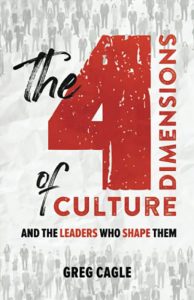
Before we leave, what prompted you to write that book?
Interestingly enough, it was to challenge leaders to look at running their businesses differently. Business leaders tend to operate and lead from where the light is. They’re like, “I can look at a report. I can see what my revenue projections say. I can see what my profit margin says. I can see where my brand opportunities are.” It’s all of that. They try to lead from there.
What I’m trying to get them to understand is that it is culture. Culture leads in your absence. Culture executes it. Focus on that and understand it deeply. When you do, you’re going to lead differently. I feel so blessed because we’ve gotten this message out there over the past couple of years and we’re seeing some significant transformations in the way business leaders lead and ultimately how their organizations do business. It’s exciting.
I love it. I’m going to have to get it now culture’s a big thing. You’ve got to have the right culture. In your case, it will be to think differently, right?
Yes.
Thank you so much for taking the time to be here. It was great to meet you. I look forward to following your book and following you.
Thank you very much.
Important Links
- Greg Cagle
- WHY.os
- Be Weird
- Amazon – The 4 Dimensions of Culture and the Leaders Who Shape It
- Barnes and Noble – The 4 Dimensions of Culture and the Leaders Who Shape It
About Greg Cagle
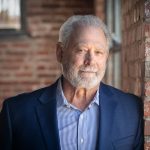 Greg Cagle is a passionate advocate for authenticity, a transformational executive coach, a corporate culture consultant, an author, and a speaker. Leveraging more than twenty-five years of in-the-trenches experience in building and leading his own companies, Greg comes alongside leaders and guides companies to position them for breakthrough success in building a culture that blows away the competition.
Greg Cagle is a passionate advocate for authenticity, a transformational executive coach, a corporate culture consultant, an author, and a speaker. Leveraging more than twenty-five years of in-the-trenches experience in building and leading his own companies, Greg comes alongside leaders and guides companies to position them for breakthrough success in building a culture that blows away the competition.
With his proven “Let’s do this” approach, Greg has served top organizations like McCormick, Planet Fitness, Steel Dynamics, Army Special Operations, and the FDA. He’s worked with a wide range of industries including manufacturing, 5-Star Hospitality, technology, software, non-profit education, higher education, financial, insurance, and engineering.
Greg has also partnered with the John C. Maxwell company for many years as an executive coach, speaker, trainer, and business consultant. In every consulting and coaching relationship, speaking engagement, and training environment, Greg’s focus is on getting innovative, creative results that empower leaders and teams from around the world to outperform the competition and achieve more than they ever believed possible in business and in life.

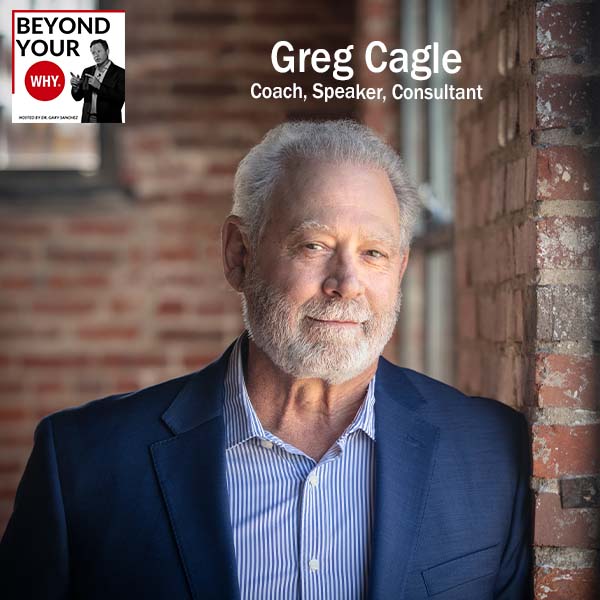
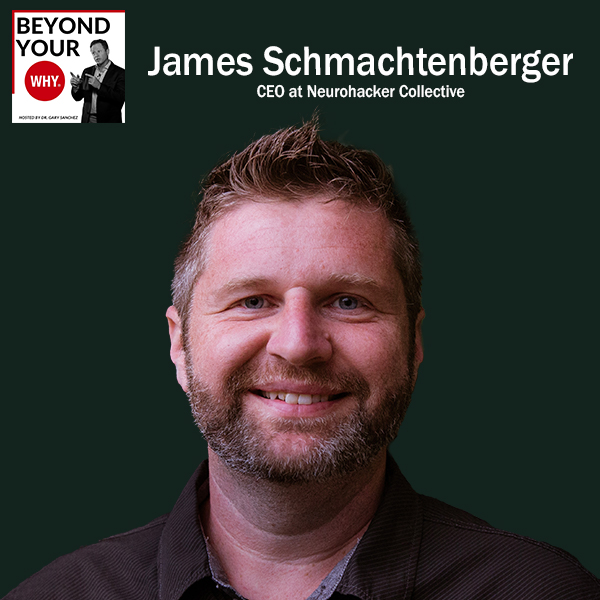
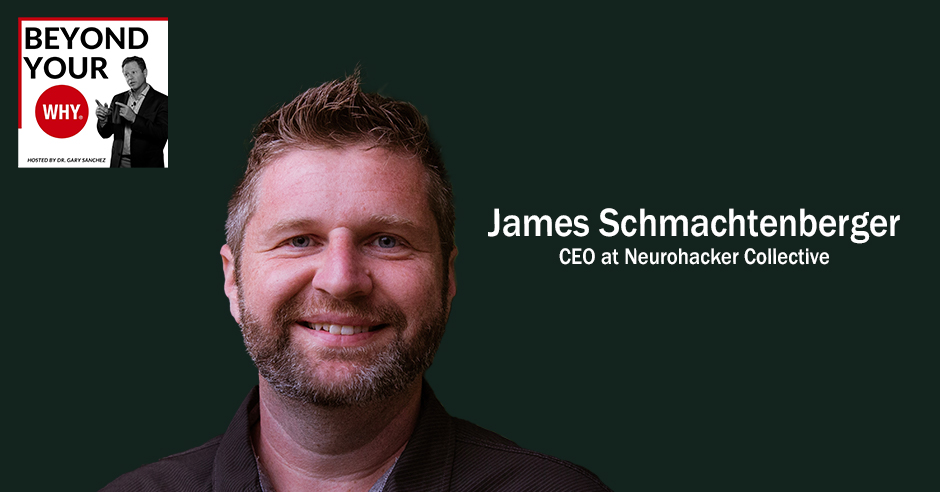




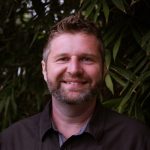 James Schmachtenberger is a successful serial entrepreneur, with a lifelong focus on using business and innovation to effect large-scale change for the benefit of humanity. James is the co-founder and the CEO of Neurohacker Collective, a company focused on making groundbreaking products for health and well-being through complex systems science. His areas of expertise include nootropics, anti-aging and regenerative medicine, sleep and fast-paced entrepreneurialism.
James Schmachtenberger is a successful serial entrepreneur, with a lifelong focus on using business and innovation to effect large-scale change for the benefit of humanity. James is the co-founder and the CEO of Neurohacker Collective, a company focused on making groundbreaking products for health and well-being through complex systems science. His areas of expertise include nootropics, anti-aging and regenerative medicine, sleep and fast-paced entrepreneurialism.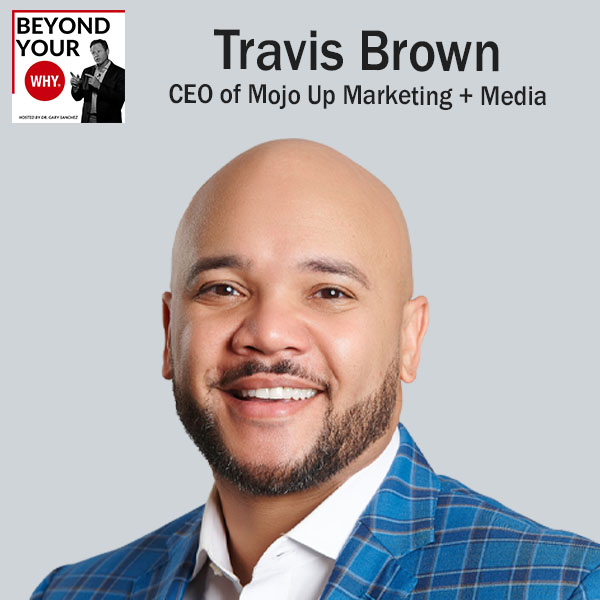
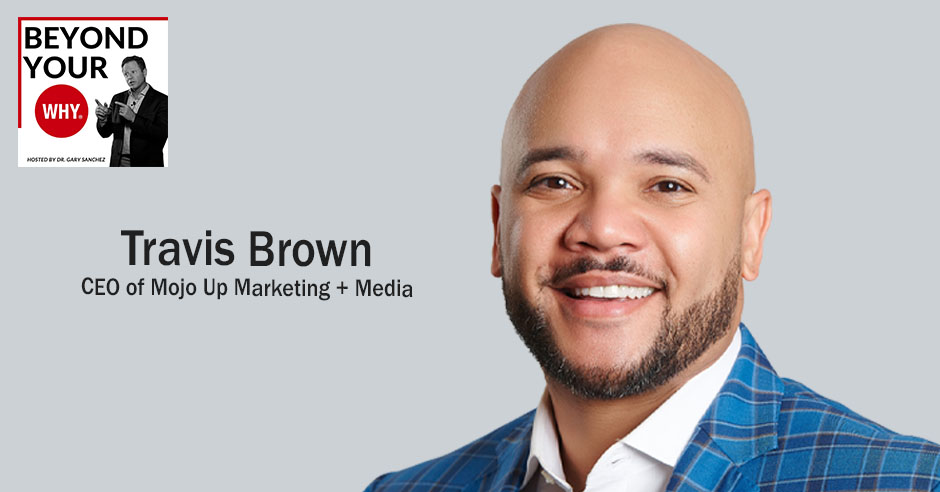





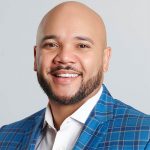 Travis Brown is the CEO of Mojo Up Marketing + Media. Mojo Up is an MBE certified, black-owned and minority-operated, full service, brand marketing agency that is made up of a diverse and talented team of marketing professionals and creatives. Our focus is to tell the story, shape the brand, and guide the marketing future of our clients as the make their greatest impact by using their greatest asset – their own authenticity.
Travis Brown is the CEO of Mojo Up Marketing + Media. Mojo Up is an MBE certified, black-owned and minority-operated, full service, brand marketing agency that is made up of a diverse and talented team of marketing professionals and creatives. Our focus is to tell the story, shape the brand, and guide the marketing future of our clients as the make their greatest impact by using their greatest asset – their own authenticity.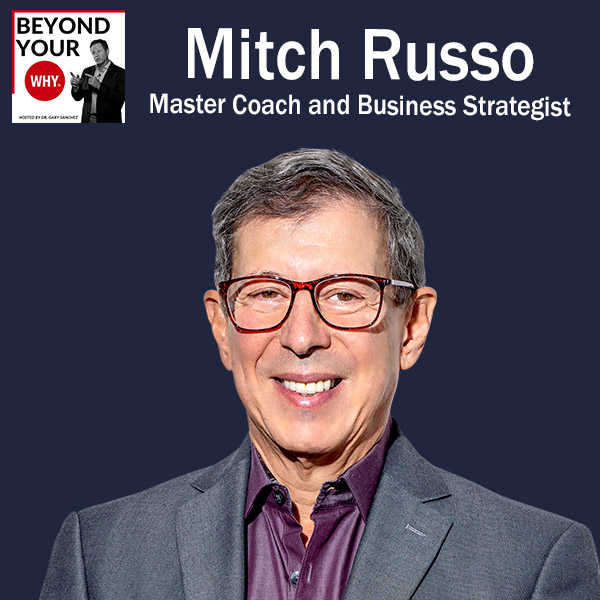
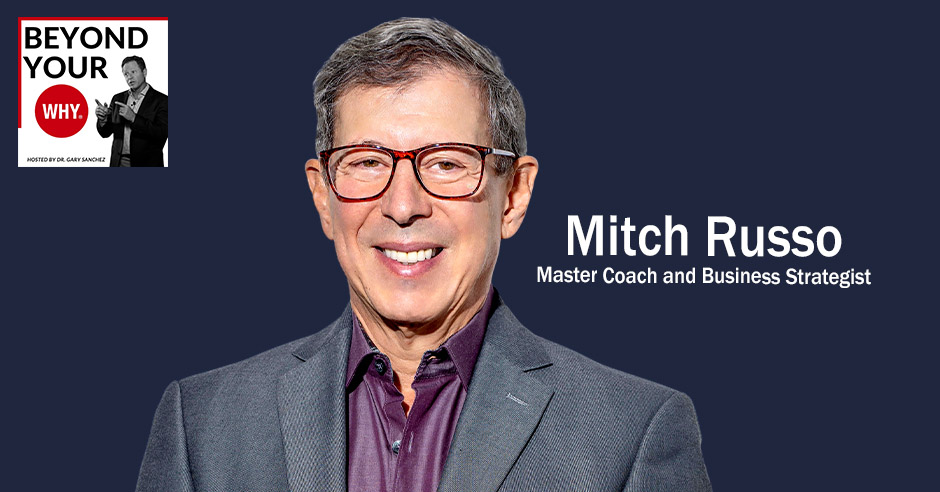
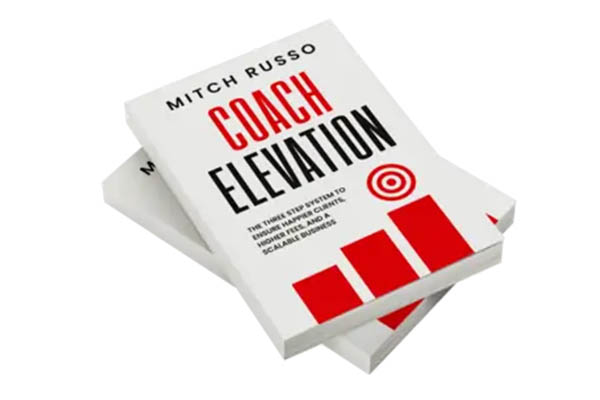



 Mitch Russo started a software company in his garage, sold it for 8 figures and then went on to build a company to over $25M with Tony Robbins and Chet Holmes. Nominated twice for Inc Magazine Entrepreneur of the Year.
Mitch Russo started a software company in his garage, sold it for 8 figures and then went on to build a company to over $25M with Tony Robbins and Chet Holmes. Nominated twice for Inc Magazine Entrepreneur of the Year.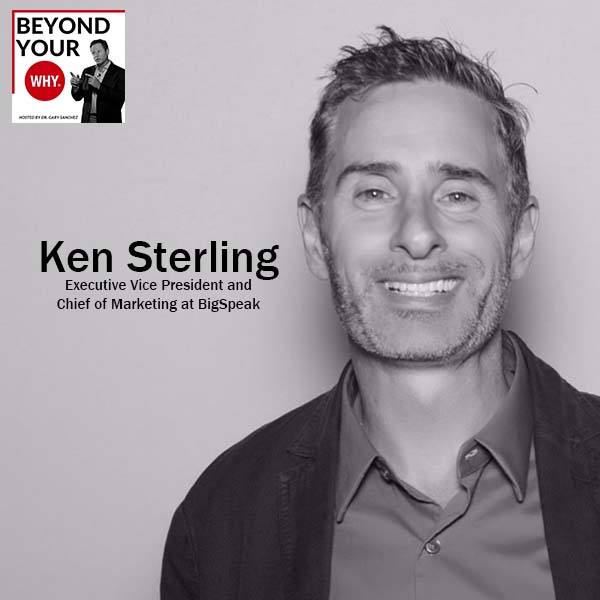
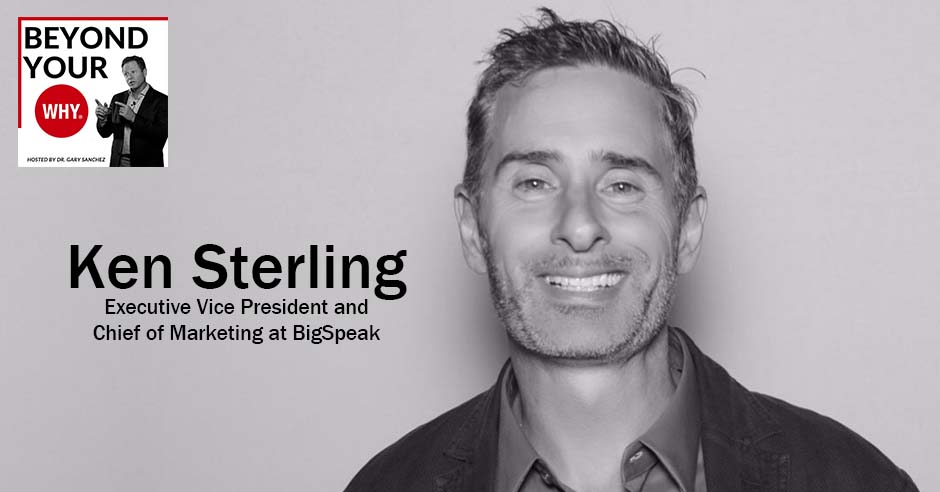




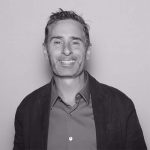 Ken is an attorney and an executive at BigSpeak speakers bureau. He is also an entrepreneur and angel investor in several tech startups. Ken mainly focuses on entertainment, media and well known thought leaders. At BigSpeak he serves as the Executive Vice President and Chief Marketing.
Ken is an attorney and an executive at BigSpeak speakers bureau. He is also an entrepreneur and angel investor in several tech startups. Ken mainly focuses on entertainment, media and well known thought leaders. At BigSpeak he serves as the Executive Vice President and Chief Marketing.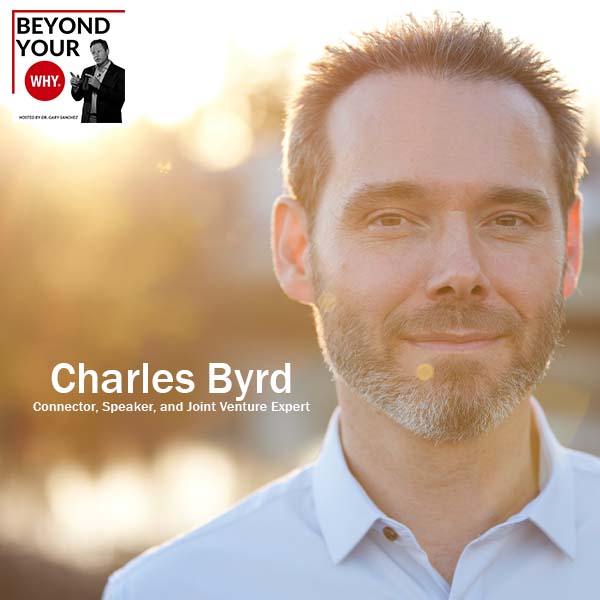
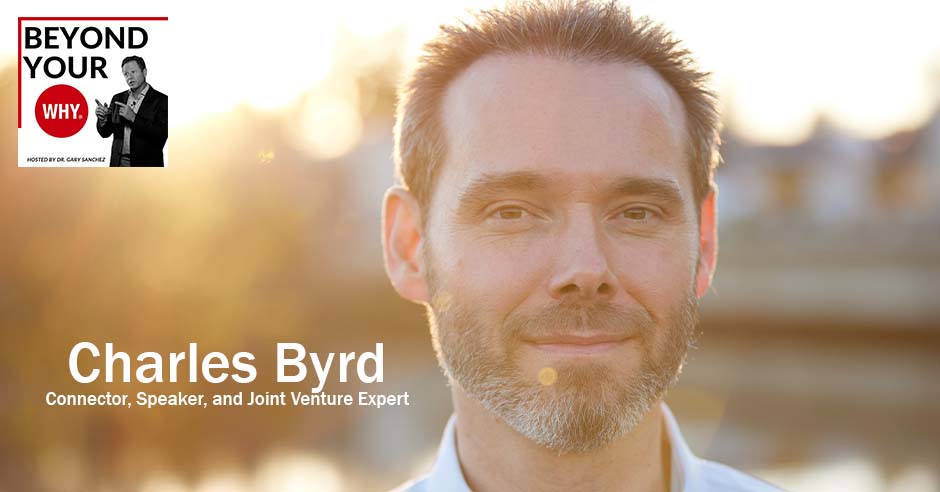
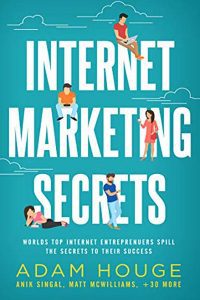
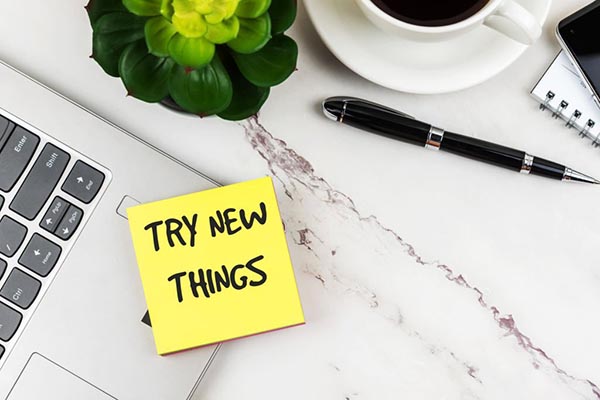


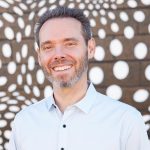 Today, I have the honor to introduce to you Charles Byrd. There is the official bio and his incredible background and success in Silicon Valley, but that’s not as important. What you really need to know about Charles is his proven record of helping others create super profitable joint venture partnerships.
Today, I have the honor to introduce to you Charles Byrd. There is the official bio and his incredible background and success in Silicon Valley, but that’s not as important. What you really need to know about Charles is his proven record of helping others create super profitable joint venture partnerships.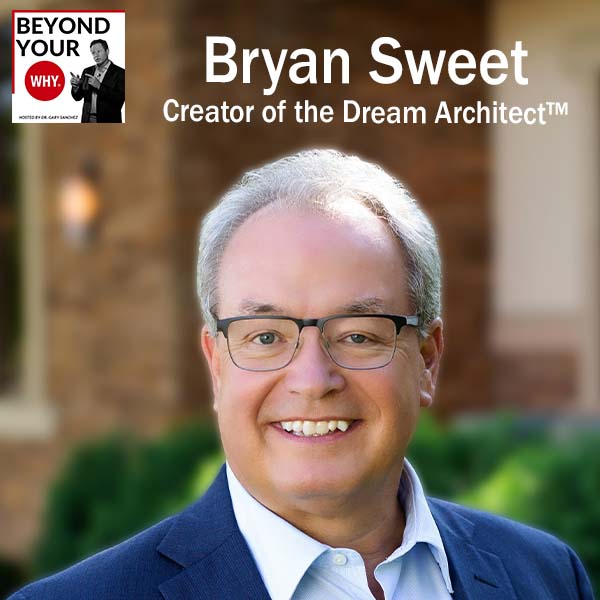
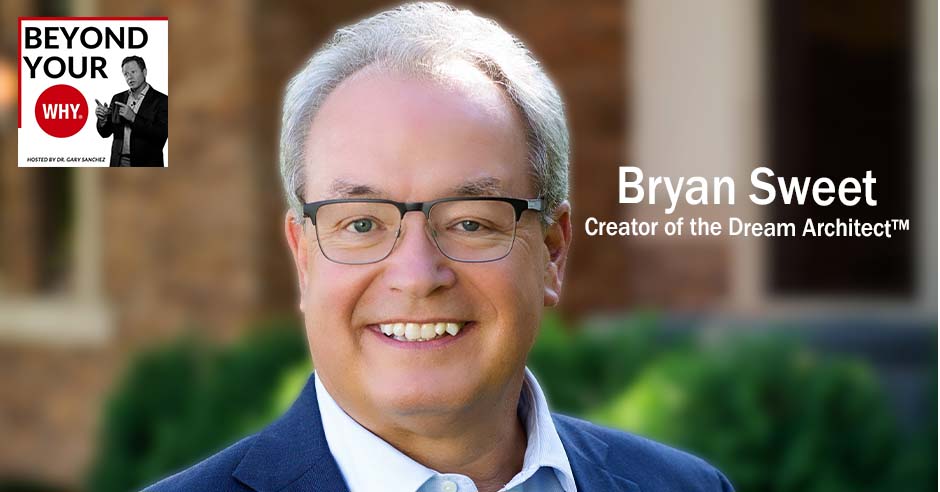




 As a Forbes Best-in-State Wealth Advisor for multiple years running, Bryan has been on the mission to help people live their retirement dreams since the start of his career in financial services back in 1979. It is because of this that he created his proprietary The Dream Architect™, which not only helps his clients maximize their distribution planning in retirement, but also helps them strive for and accomplish their biggest dreams.
As a Forbes Best-in-State Wealth Advisor for multiple years running, Bryan has been on the mission to help people live their retirement dreams since the start of his career in financial services back in 1979. It is because of this that he created his proprietary The Dream Architect™, which not only helps his clients maximize their distribution planning in retirement, but also helps them strive for and accomplish their biggest dreams.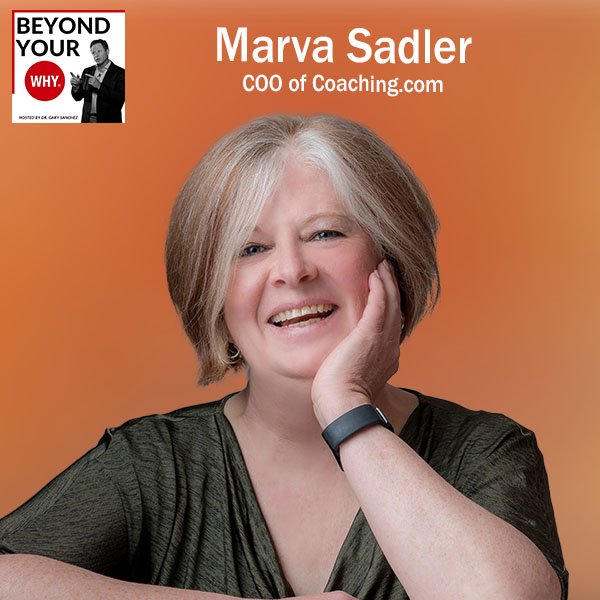
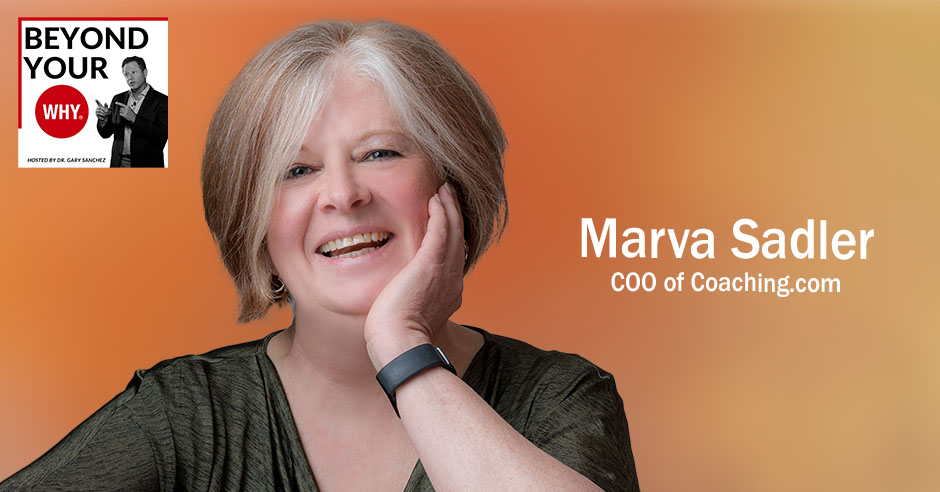



 Ms. Sadler is COO of Coaching.com. She joined the organization in September 2021 when the company acquired WBECS, where she was CEO. She is an experienced business executive and consultant with over 20 years leading strategic and operational growth programs for small to mid-sized organizations. She also has extensive expertise in strategy creation, leadership development and executive coaching. Prior to joining WBECS, Ms. Sadler held executive management positions (EVP, CFO, and CEO) in large organizations, including Franklin Covey, and Achieve Global, Ms. Sadler also has substantial experience across a variety of industries, leading small, private organizations through start-up and turnaround efforts, including positions as CEO of Veracity Solutions, Inc., a software development consulting firm, President of Hoggan Health Industries, a commercial fitness equipment manufacturer, and Chief Operating Officer of eLeaderTech, a start-up software firm. She began her career in strategy consulting with international strategy firms Marakon Associates, and Bain and Co. She has also served in the nonprofit sector as Program Director for People Helping People, an employment success program for low-income women, primarily single moms, and as a Board Member and strategic advisor for No More Homeless Pets of Utah. Ms. Sadler is a certified Theory of Constraints Jonah.
Ms. Sadler is COO of Coaching.com. She joined the organization in September 2021 when the company acquired WBECS, where she was CEO. She is an experienced business executive and consultant with over 20 years leading strategic and operational growth programs for small to mid-sized organizations. She also has extensive expertise in strategy creation, leadership development and executive coaching. Prior to joining WBECS, Ms. Sadler held executive management positions (EVP, CFO, and CEO) in large organizations, including Franklin Covey, and Achieve Global, Ms. Sadler also has substantial experience across a variety of industries, leading small, private organizations through start-up and turnaround efforts, including positions as CEO of Veracity Solutions, Inc., a software development consulting firm, President of Hoggan Health Industries, a commercial fitness equipment manufacturer, and Chief Operating Officer of eLeaderTech, a start-up software firm. She began her career in strategy consulting with international strategy firms Marakon Associates, and Bain and Co. She has also served in the nonprofit sector as Program Director for People Helping People, an employment success program for low-income women, primarily single moms, and as a Board Member and strategic advisor for No More Homeless Pets of Utah. Ms. Sadler is a certified Theory of Constraints Jonah.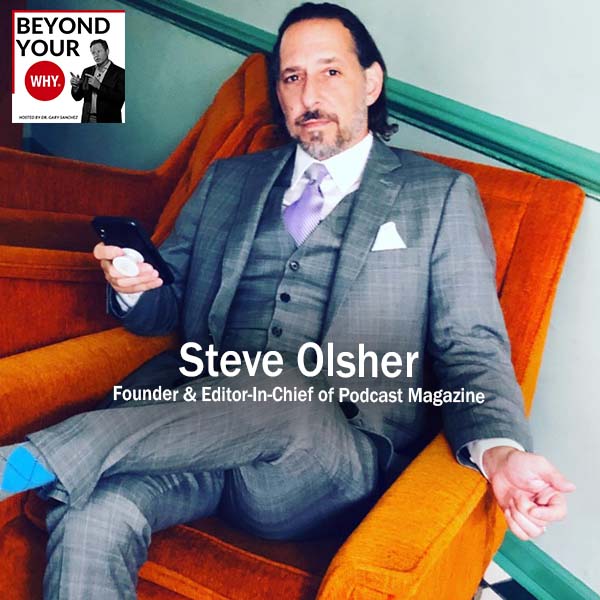
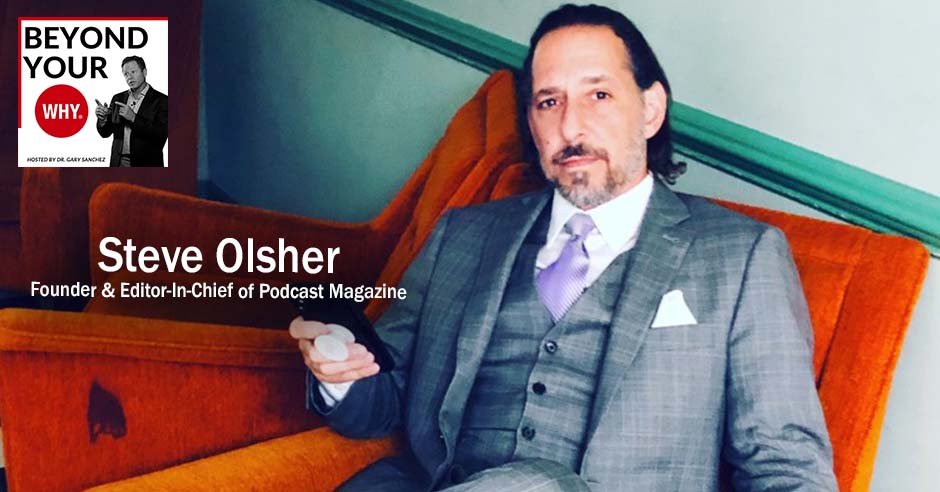





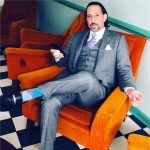 Founder/Editor-In-Chief of Podcast Magazine, Creator of ClubPod (the largest podcast group on social media), NY Times bestselling author, keynote speaker, Original Founder of Liquor.com, and the host of the top-rated podcast Reinvention Radio.
Founder/Editor-In-Chief of Podcast Magazine, Creator of ClubPod (the largest podcast group on social media), NY Times bestselling author, keynote speaker, Original Founder of Liquor.com, and the host of the top-rated podcast Reinvention Radio.